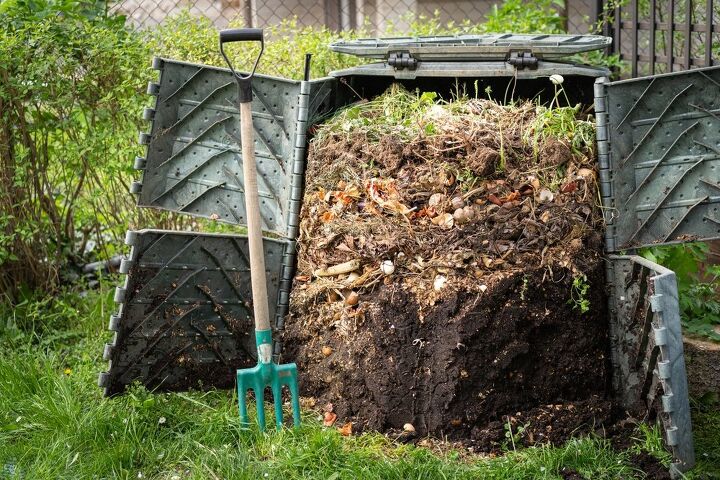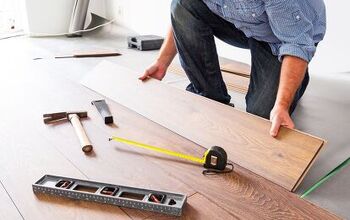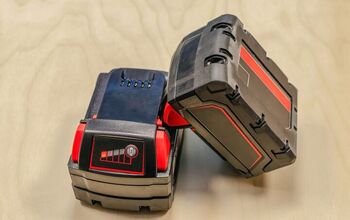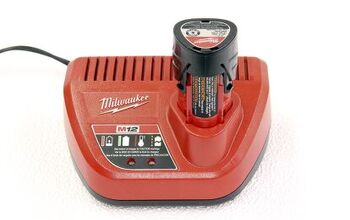How Can You Tell When Your Compost Is Finished?

Composting is quite rewarding, but it can also be confusing whether you’re a novice or a veteran. After months of composting, you may be wondering if it’s finally done. So, how can you tell your compost is finished?
Run your fingers through your compost pile to see if it feels brittle and crumbles easily. This will tell you that your compost is finished and ready to use. The materials should look dark brown and smell pleasantly earthy. You can make your compost finish faster if you shred the materials, use an accelerator, and add brown materials.
It’s also important to keep your compost pile damp, as the microbes require moisture. Follow along as we explore how you can tell your compost is finished and learn how to speed it up.
How Do I Know When My Compost Is Done?
You can tell your compost is ready when it shrinks and becomes brittle. However, parts of the compost pile may not be done, such as sticks. That said, you can tell the majority of your compost is finished when it’s brittle and smells quite earthy.
The majority of the pile should appear as dark brown as possible. Your compost isn’t quite finished yet if you see some food and organic materials that aren’t decomposed. Run your fingers through the compost pile if you suspect that it’s done.
You can tell that your compost pile isn’t finished yet if it still feels warm. That’s a sign that the microbes are still working to process the organic materials.
How Long Does It Take For Compost To Break Down?
Compost can break down in as little as 2 weeks to 4 months. However, it can also take 1-2 years for compost to break down depending on many factors. For example, an compost pile with a lot of big organic material takes longer to break down.
The microbes take their time with bigger materials, as it requires more work to break them down. Even the ratio of nutrients and chemicals within your compost affects the timeline. The decomposition process will slow down if there is an imbalance in the carbon-to-nitrogen ratio.
Your compost pile will also take a long time to break down if it’s packed too tight. That’s because the pile won’t get enough oxygen. Finally, it will take a long time for the compost to break down if the moisture level isn’t between 40% and 60%.
How To Make Compost Go Faster
You aren’t doomed if your compost pile isn’t finished after months or even a year. Several methods help accelerate the process, such as:
1. Increase The Surface Area
It’s hard for microbial organisms to break down compost when the pile is too dense. That’s why it’s important to spread the compost out over a large surface area. Ideally, your bin should be at least 3 feet wide, 3 feet long, and 3 feet tall.
However, you can add a foot onto each of these dimensions if your pile takes too long. Don’t put bulky waste in the compost bin, as that will increase the surface area and decomposition time.
2. Focus On Aeration
The more you stir your compost pile, the faster it will break down. Compost takes a long time to break down when it doesn’t get enough oxygen, so you must create air pockets. Some of the microbes can even reproduce if they get enough oxygen.
Try to stir your compost pile at least twice a week. Be careful to make sure you don’t pack the pile down too much. There won’t be any room for air pockets if the pile is too airtight.
3. Shred The Waste
Bulky organic material naturally takes a long time to break down in a compost pile. Do the microbes in your compost pile a favor and shred the materials beforehand. They will break down the materials much faster.
You can find compost shredders, but you can also use a lawnmower or garden shears. This will reduce the surface area and provide finished compost much sooner.
4. Add Brown Materials
The ideal compost ratio is 4 parts brown materials to 1 part green material. Your compost will break down slowly if the ratio is off because there’s not enough brown material. Some people create a 50% brown to 50% green ratio, but that’s bad for several reasons.
First, your compost pile will take a long time to break down. Second, your compost bin will smell bad because of the excessive green material. Sawdust, straw, leaves, and paper are the best brown materials to speed up the process. Hay and straw can insulate your compost bin, which will increase the internal temperature.
5. Add Water
Water is just as important for your compost pile as the materials you put into it. Of course, you don’t want to oversaturate your compost pile. Instead, you must keep the compost pile damp, so the moisture level doesn’t drop below 40%.
It helps to use a garden sprayer, so you don’t accidentally oversaturate the pile. Don’t use a garden hose, as that’s harder to control. A garden sprayer lets you slowly add water until the pile becomes slightly damp to the touch.
6. Use Worms
Worms can accelerate your composting timeline. Not only do they help break down the materials, but so do their secretions. This is known as vermicomposting, and it’s a great way to harvest your compost in time for gardening.
Red wiggler worms are the best for composting, but nightcrawlers are great as well. It only takes roughly 1 pound of worms to speed up the composting process.
7. Use An Accelerator
You can find many affordable compost accelerators online and in stores. However, you can make a homemade compost accelerator with a few simple steps. Many people simply mix beer, ammonia, and soda with water to make an accelerator.
This can help create yeast within your compost pile, and that will accelerate the process. Dark sodas, like colas, add carbon to the compost pile. That may be necessary if your carbon-to-nitrogen ratio is off. Otherwise, you can buy a compost accelerator for just $12 from many hardware stores.
Summing It Up
You can tell your compost is finished when it smells earthy and the materials crumble easily. The process can take a few weeks to a few months, but it can also take over a year. You can ensure your compost is finished sooner if you stir the pile regularly, shred the waste, add brown materials, and use an accelerator.
Related Guides:

Nick Durante is a professional writer with a primary focus on home improvement. When he is not writing about home improvement or taking on projects around the house, he likes to read and create art. He is always looking towards the newest trends in home improvement.
More by Nick Durante












![10 Best Cordless Leaf Blowers – [2022 Reviews & Ultimate Guide]](https://cdn-fastly.upgradedhome.com/media/2023/07/31/9070789/10-best-cordless-leaf-blowers-2022-reviews-ultimate-guide.jpg?size=350x220)














